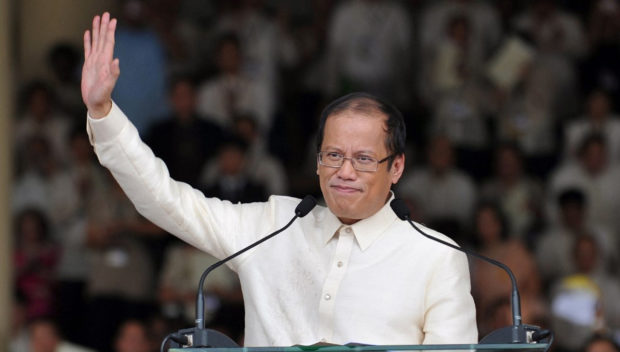MANILA, Philippines — Former President Benigno Simeon “Noynoy” Aquino III has passed away, former Malacañang officials said Thursday morning.
He was 61.
Aquino died at 4:30 a.m. on Thursday at the Capitol Medical Center in Quezon City, said a source who served as a senior Cabinet official during the administration of former president Corazon Aquino.
Aquino was in office from 2010 to 2016 as the Philippines’ 15th president.
The Aquino family has yet to release an official statement on his death.
But his younger cousin, former Senator Bam Aquino, paid tribute to the former president, saying he was heartbroken over the older Aquino’s demise.
“Nadurog ang puso ko sa paglisan ni PNoy sa atin. Sa mga susunod na oras, maraming sasabihin tungkol sa kanya – iba totoo, iba hindi. Pero ito ang masasabi ko – lahat ibinigay niya para sa Pilipino. Wala siyang itinira,” said the former senator, the first relative to speak up on Aquino’s death.
Mahal ka namin, PNoy! Maraming salamat at paalam. pic.twitter.com/qQXByjXM9Y
— Bam Aquino (@bamaquino) June 24, 2021
(My heart was broken when PNoy left us. In the next couple of hours, many things will be said about him – some true, some not. But this is all I can say – he gave everything he can for the Filipino people. He did not leave anything for himself.)
He was the only son of former president Corazon Aquino and her assassinated husband, senator Benigno “Ninoy” Aquino, both revered for leading the struggle to restore democracy in the archipelago nation.
Foreign Secretary Teodoro Locsin tweeted his “grief over the death of a sea-green incorruptible”.
He said Aquino was “brave under armed attack, wounded in crossfire, indifferent to power and its trappings, and ruled our country with a puzzling coldness but only because he hid his feelings so well it was thought he had none”.
Supreme Court Justice Marvic Leonen, who was Aquino’s former peace adviser, expressed “profound sadness” over the former leader’s death.
“I knew him to be a kind man, driven by his passion to serve our people, diligent in his duties, and with an avid and consuming curiosity about new knowledge and the world in general,” Leonen said.
Aquino, who was succeeded by President Rodrigo Duterte, waged an anti-corruption campaign during a term that ushered in key economic reforms.
Unusually for the conservative Catholic country, Aquino remained a bachelor throughout his life, though had relationships with a number of women.
Powerful family name
Aquino was born on February 8, 1960 to one of the country’s wealthiest land-owning political families.
A latecomer to the presidential race in 2010, he declared his candidacy only after his mother’s death from cancer the previous year had plunged the country into mourning, and demonstrated the power of the family name.
He made fighting corruption his mantra, capitalizing on his family’s clean reputation, and vowed to reduce the poverty afflicting a third of the population.
His administration delivered average annual economic growth of just over 6.0 percent, the highest since the 1970s, handing the country investment-grade status — but poverty remained endemic.
Aquino, who earned an economics degree from the elite Ateneo de Manila University, was long mocked by opponents as a fortunately surnamed under-achiever with no administrative or business experience.
They also said he had little to show for the more-than a decade he spent as a congressman and senator.
But the chain-smoking Aquino blossomed during the election campaign into a confident public speaker and the nation’s leading critic of his predecessor, Gloria Arroyo, who was arrested for corruption after she left office.
The Aquino family name was stamped into Philippine political history through tragedy.
Military personnel shot dead “Ninoy” Aquino at Manila airport in 1983 as he returned from US exile to lead the democracy movement against dictator Ferdinand Marcos.
The event shocked the world and ignited the non-violent “People Power” movement that toppled Marcos. The martyred politician’s widow, Corazon, led the revolution and succeeded Marcos as president in 1986.
Aquino had a bullet lodged in his neck — one of five that struck him when rebel soldiers attacked the presidential palace in 1987 in a coup attempt against his mother that killed three of his bodyguards.
Unlike Duterte, Aquino put the Philippines’ long-running dispute with China over competing claims to the South China Sea at the top of his foreign policy agenda.
He launched a landmark case with a UN-backed tribunal to challenge Beijing’s claims to most of the sea, which ruled in favor of the Philippines.
But Beijing rejected the decision.
Aquino is survived by four sisters.
